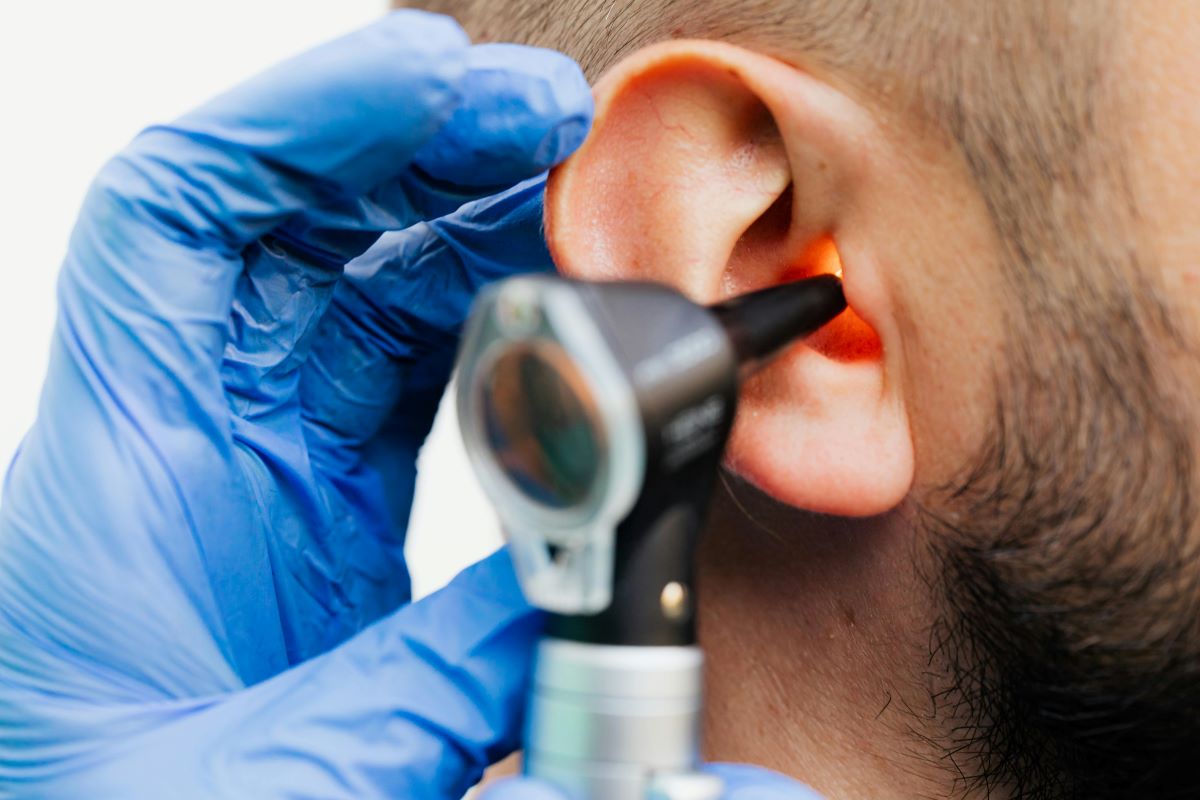Photo via Pexels

The Impact on Well-being
Helping seniors with vision and hearing impairments goes beyond just addressing physical conditions. The capacity to see and hear significantly influences a senior’s overall well-being. Beyond the challenges of dealing with compromised sight and sound, these impairments can also result in social isolation, mental health concerns, and a higher risk of accidents.
Common Causes
It’s important to get a handle on what usually causes vision and hearing impairments. Whether it’s related to getting older or tied to specific medical conditions, knowing the root cause helps you tailor your support to the unique needs of your loved one. Some of the common causes are below:
- Glaucoma
- Cataract
- Age-related macular degeneration
- Diabetic retinopathy
- Techniques for Helping Seniors with Vision Impairments
As your loved one deals with the challenges of losing their eyesight, it’s essential to use techniques that really make a difference. These techniques aren’t just about coping; they’re about helping them keep their independence and making their overall quality of life better.
Optimize Lighting
Make sure the spaces your loved one spends time in are well-lit for all their activities. Consider using a task light, especially when they’re playing cards, reading, or working on crafts. It really makes a difference.
Enhance Organization
Think about where your loved one usually keeps their things and try to keep them in the same spot every time. Using a basket for stuff like remotes, electronics, and keys can be super handy. Combining sensory and visual methods makes it easier for your loved one to navigate their surroundings.
Clear Pathways
Make sure the paths at home are clear and remove any obstacles. It not only makes things more accessible but also lowers the risk of accidents for your loved one.
Assistive Technologies to Support Seniors with Vision Impairments
A ton of helpful devices are there to support seniors with vision impairments, giving them more independence and ways to stay engaged. These gadgets not only connect seniors with the digital world but also make everyday tasks easier, helping them keep a sense of independence.
Video Magnifiers
Video magnifiers are great for reading small print. You can place things like books or documents on a scanner, and then the screen shows a bigger version. Some of these gadgets can be set up on a stand or held in your hand. Furthermore, many of the stand magnifiers even have the innovative feature of text-to-speech. That means your loved one can hear the text being read out loud.
Audio Books
When someone you care about is dealing with vision loss, one big painpoint is often the idea of not being able to read anymore. Luckily, these days, you can find almost every book or magazine in audio formats on platforms like Audible or Spotify.
Assistive Technologies to Support Seniors with Hearing Impairments
Exciting new innovations have come up to make life better for seniors with hearing issues, bringing in a fresh wave of improved communication.
Personal Amplifiers
These little amplifiers are game-changers – they cut down on background noise and turn up the volume. Perfect for smaller spaces where other listening devices might not be a good fit or just aren’t around.
Amplified Phones
Amplified phones give your loved one the power to crank up the volume during calls, making it easier to hear the person on the other end. Plus, captioned phones go the extra mile by turning spoken words into text, so they can read along with the conversation. It’s like having a personalized phone experience!
Alerting Devices
These alerting devices give your loved one a heads-up by using vibrations whenever there’s a sound around that they might miss. It’s like a silent notification system, ensuring they don’t miss a thing.
Communication Strategies
Supporting seniors with vision and hearing impairments requires using communication strategies tailored to their unique needs. It’s all about fostering a genuine connection and understanding that fits each individual.
Bring in visual cues and gestures to boost communication: Sometimes, a simple gesture or visual hint can speak volumes.
Patience and Clear Conversations: When talking, take your time and speak clearly. This makes it easier for seniors to follow along and engage in conversations comfortably.
Reduce Background Noise: Cut down on background noise wherever you can. Turn down the TV or music to create a quieter environment, making it easier for seniors to focus on the conversation.
Extending a Compassionate Hand
When it comes to supporting seniors with vision and hearing impairments, it’s more than just providing physical assistance. It’s about building a compassionate and inclusive environment. By truly grasping their individual needs and putting practical strategies into action, you ensure that your loved one continues to live a life full of meaning and independence.
Searching for a caring place for your loved one? Rest easy knowing they’re in good hands at Sandyside Senior Living. If you want to know more, give us a call at (248) 698-3700 or simply fill out our online form.

